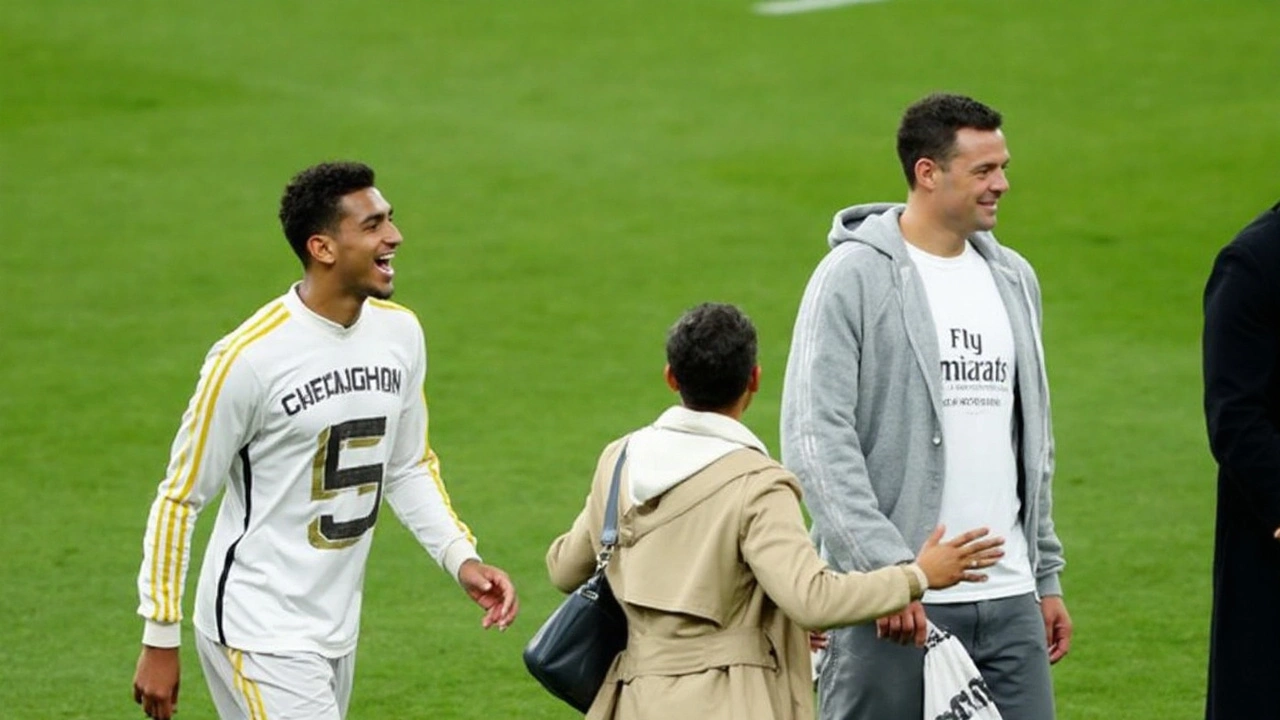‘Two great clubs, one unforgettable season’
A teenager ends a season with a promotion medal and an individual award, then changes shirts for one of Europe’s biggest talent factories. That was the arc of Jobe Bellingham’s 2024/25—capped by an Instagram story on July 9, 2025, where he wrote, “2024/25 Finished. Two great clubs, one unforgettable season,” alongside a photo from Wembley in his Sunderland kit.
At 19, Bellingham leaves the Stadium of Light with the Championship’s Young Player of the Year on his CV and a clear stamp on Sunderland’s return to the Premier League. He was a constant presence in midfield, comfortable driving the ball forward, dropping in to link play, and handling the noise that comes with big-pressure matches. The Wembley image speaks for itself: Sunderland climbed out of the second tier, and he was in the middle of it.
The move to Borussia Dortmund fits the modern blueprint for young English midfielders who want top-level minutes rather than a bench role. Dortmund have a long track record of backing teenagers in real games. It’s not just about development drills; it’s about starting on Saturday in front of 80,000 and taking knocks in the Champions League. For Bellingham, that pathway is obvious and attractive.
There’s always going to be a comparison to his older brother Jude, whose route included an early switch to Dortmund before the leap to Madrid. Jobe’s path looks different by design. He built a body of work in the Championship, shouldering real responsibility in a promotion chase and proving he can handle senior football every week. That’s a tougher education than academy matches, and it gives him a stronger base as he heads to Germany.
There’s also a message in the timing. He closed out Sunderland’s campaign, helped deliver the step up to the Premier League, and only then signed off for Dortmund. That sequence matters. It means he leaves with the job done, not half-finished, and Sunderland head into the top flight with a clear story to tell future signings about opportunity and development.
From a sporting point of view, his profile makes sense for Dortmund. He’s comfortable in tight spaces, he can carry the ball through midfield lines, and he has the engine to press and recover. In the Bundesliga, where transitions are fast and coaching staffs value flexibility, those traits get amplified. He’ll have to adjust to a new tempo and different tactical asks, but he’s already shown he can learn on the fly.

What Bellingham’s rise means for Sunderland
Sunderland will point to this as proof-of-concept: recruit smart, give young players real minutes, and watch value grow alongside results. That’s not just a slogan. Bellingham’s season delivered silverware for the club and a career springboard for the player. It’s exactly the pitch the recruitment team will make in meetings this summer.
The next phase is about copy-and-paste with nuance. The club can’t replace him with a like-for-like clone, but it can follow the same principles—athletic, coachable prospects who want to play. Names already linked to the model include Diarra, Sadiki and Talbi. The plan is clear: get them in early, let them compete for starts, and create an environment where their price tags grow because their performances grow.
That’s the hard part: you have to actually play them. Sunderland did that with Bellingham. He wasn’t protected from pressure. He was in it—Wembley included—and the staff trusted him to handle it. If that continues, the Stadium of Light becomes a destination, not just a stopover, for rising talent who want a straight line to Premier League football or European moves.
Financially, developing rather than overpaying is the only sustainable way to square the Premier League leap with the reality of budgets. Young players don’t just bring resale value. They bring energy, flexibility, and the buy-in you get from someone who’s hungry for minutes. That blend helped Sunderland last season; it’s the template for staying competitive next season too.
For the dressing room, there’s a cultural piece. Bellingham played like a senior at 19—steady on the ball, engaged off it, and relentless in games that felt like they could tip either way. That sets a standard. If Diarra, Sadiki, Talbi or the next wave hit that level of seriousness early, the squad floor rises, and the ceiling follows.
There’s also the recruiting advantage. “Come here, and you’ll play. Do well here, and Europe will notice.” It’s an honest promise because it just happened. For an ambitious 18- or 19-year-old weighing a Premier League bench against 2,500 minutes at Sunderland, that case is powerful.
Bellingham’s post was short, but it captured the year: the grind of a promotion run, the thrill of Wembley, and the pull of a new stage in Dortmund’s yellow and black. Two great clubs in one year, and a reminder that a clear plan, followed with conviction, can move careers—and teams—very far, very fast.
